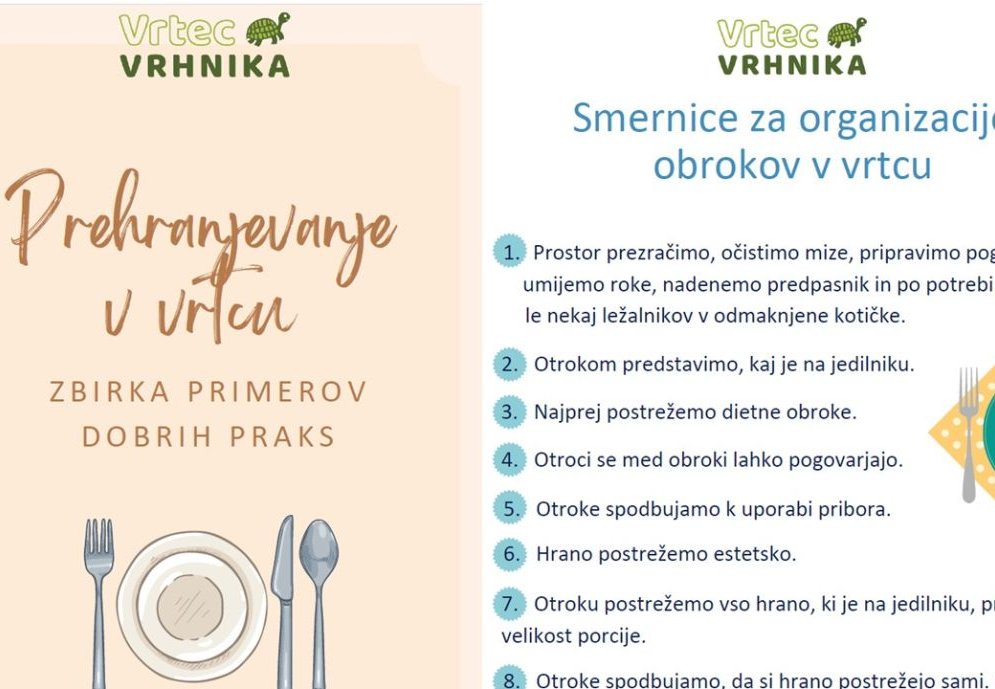

Rules for dining and reducing food waste in kindergartens
Project summary
A whole school approach to developing waste reduction rules!
Learning outcome
Pedagogues will get answers on how to behave around food at dining time, and how to treat problematic children. They will be aware of their own importance and know how to be role models for children. Often each pedagogue must find his own solutions, but together they can help each other.
Pedagogues will also get answers on how to reduce food waste in their groups.
Children will better accept new food, behave better at dining time and produce less food waste.
Time required
One school year.
Tools or equipment
- a questionnaire on kindergarten nutrition (for employees) for a general overview;
- selected target questions (for the workshop) on which you need solutions;
- classroom/hall for a workshop with groups of all employees, which rotate, paper for answers to each question;
- booklet for the selection of good practices;
- poster of selected rules for each kindergarten classroom.
Activity description
- Identify your most common problems regarding nutrition in your institution with a questionnaire for employees, focusing on: organising meals and food waste.
- Write them in the form of selected, target questions (not more than 8-10)
- Run a workshop with 8-10 tables for 8-10 questions. All employees answer these questions (3-4 people in a group, not more) and groups of employees rotate from table to table.
- Put pens and paper on each table for collecting the answers.
- At the end of the workshop, go through the answers with your work team and collect the best ideas which are viable in your kindergarten
- Present them to employees, listen to and consider the feedback and only then set the final decision about the rules.
- Write the 'Dining Rules & Reducing Food Waste Rules' and put them in every classroom and in prominent places.
- Stick to the rules.
Some example rules (organised in groups):
1. Group: Pedagogues and kindergarten meals
Pedagogues sit beside children, and they all eat together the same meal. Pedagogues encourage children.
2. Group: behaviour of children at the table
Pedagogs calm children down, they motivate them (in different ways, you will find good examples in your workshop!)
3. Group: Including the nutritional topics in the curricula
Explain the history of food, famous people who loved certain meals, the origin of food – make it interesting!
4. Group: Preventing the food waste
Think about how to use undistributed meals, fruits that weren't eaten (for example: lemonade or smoothie preparation, taking from the kitchen only 1/2 of fruits and asking for more if necessary).
Tips how to implement the topic to school curriculum
- Health, nutrition – pedagogues and children discuss how nutrition is connected to health.
- Environment protection - pedagogues explain why it is important to stick to the new rules which create fewer leftovers and how food waste is bad for the environment.
- History, geography – together with pedagogues children discover local tastes and discuss local cuisine, which is present for generations and typical for the local area.
More resources
Take a look at Dining Rules & Guidelines for Nutrition in Kindergarten Vrhnika, at their 8 Rulles to Reduce Food Waste and at the Collection of examples of good practices!
Let these materials inspire your team to write your collection, based on the questionnaire, workshop and final selection!
